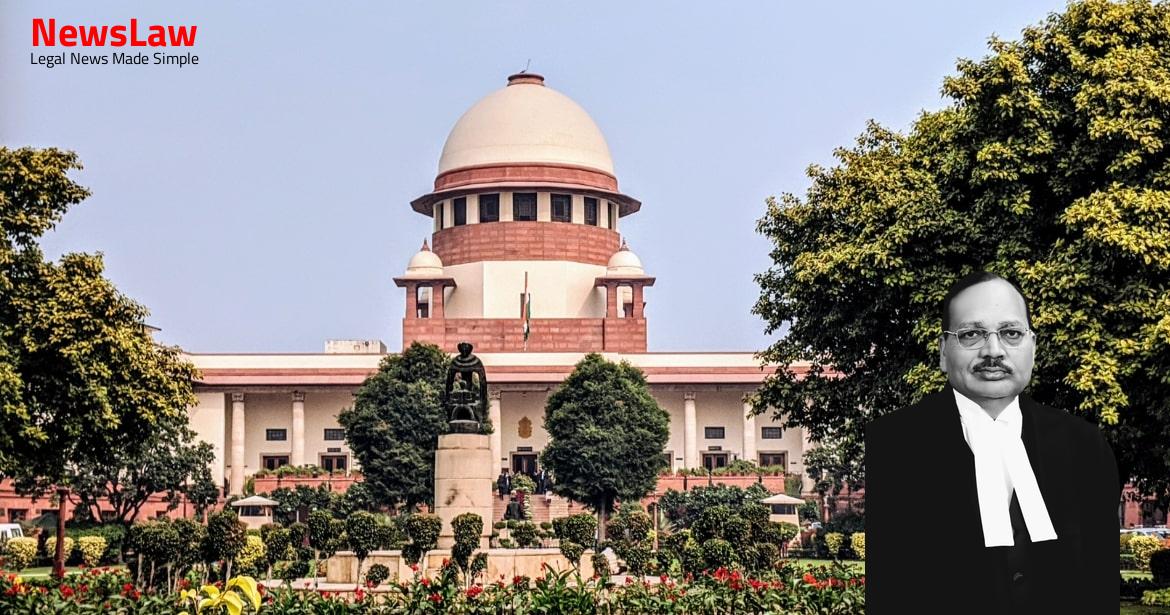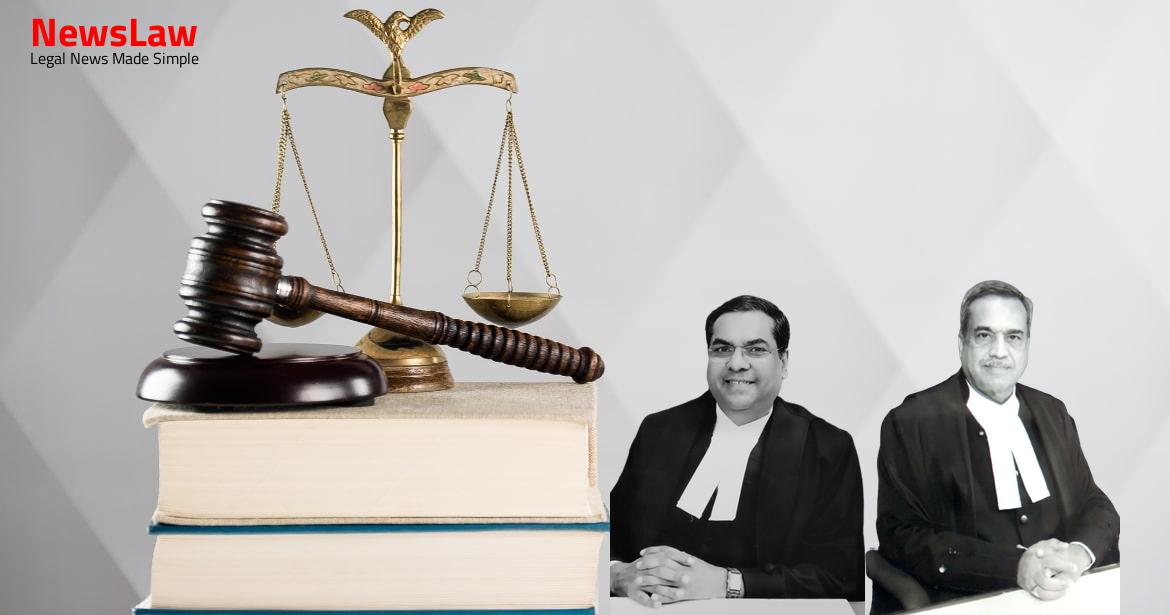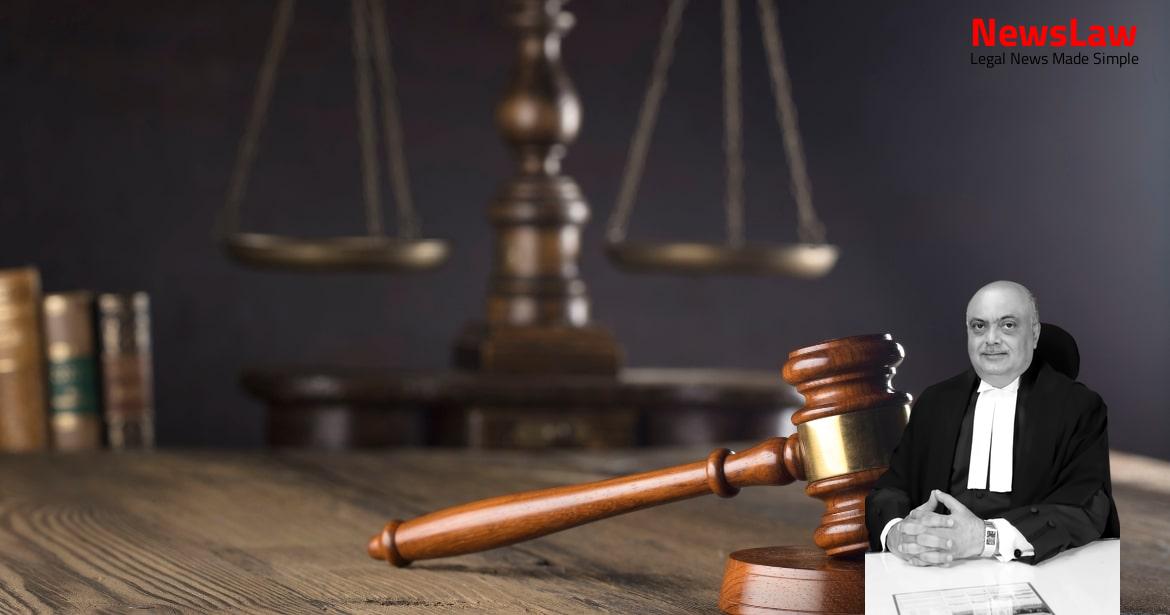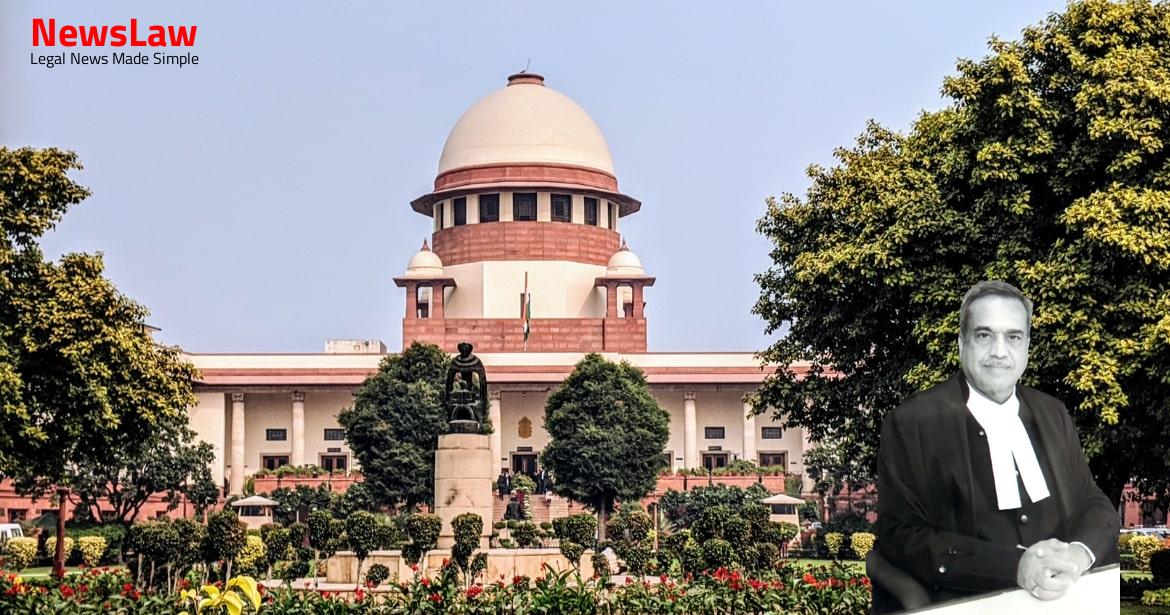In a recent legal case, the court’s analysis focused on the disclosure of investigation reports in adjudication proceedings. The court emphasized the importance of transparency and fairness in legal processes, particularly in cases involving securities regulations. This summary delves into the intricate balance between disclosing crucial information for a fair adjudication process while also considering potential impacts on market stability and third-party rights.
Facts
- The appeals were allowed and the order against the appellant was quashed on 29 January 2020.
- The grounds for quashing the order included: (i) The confirmatory order was based on suspicion about the role of the appellant; (ii) The submissions of the appellant were not appropriately dealt with; (iii) Due to the company being in liquidation, the appellant cannot influence decisions; (iv) The appellant, in the role of MD/CEO, cannot be prevented from dealing in the securities market where vicarious liability is held.
- The tribunal directed that the first respondent could issue a fresh show cause notice if evidence against the appellant emerged.
- A Division Bench of the Bombay High Court dismissed the appellant’s petition challenging a show cause notice issued by the first respondent based on alleged violation of SEBI regulations.
- The High Court observed that a clear picture of the financial affairs and roles in the alleged fraud was pending investigation.
- The time for submission of the forensic report was extended to 30 September 2018.
- SEBI appointed Pipara & Co. LLP for the investigation on 20 February 2019.
- The High Court held that the investigation report under PFUTP Regulations was for internal purposes only.
- A petition seeking a review of the High Court’s decision was disposed of by an order on 22 October 2020.
- The High Court’s decision was based on the judgment in Natwar Singh v. Director of Enforcement, stating that the investigation report does not form the basis of a show cause notice and need not be disclosed.
- The review petition challenging the High Court’s decision was rejected.
- The Audit Committee appointed Price Water House Coopers Private Limited for a forensic audit.
- PWC submitted a preliminary audit report on 20 April 2016 to the Company.
- The Company requested a first respondent to investigate possible violations of regulations based on the audit findings.
- The final report by PWC was forwarded to the first respondent on 29 November 2016.
- Investigations revealed financial misstatements dating back to 2012-13, including transfers to third parties and sales without inventory.
- A show cause notice was issued to the appellant on 19 March 2020 under various provisions.
- Appellant claimed lack of knowledge about the financial misstatements and transactions.
- Appellant challenged the show cause notice, citing violation of natural justice.
- The Company suspected specific individuals for involvement in financial misstatements.
- BSR & Co. were appointed as statutory auditors of the Company in 2016.
- Several individuals, including the appellant, were found to have prima facie violated securities regulations.
- The first respondent directed restrictions on securities market dealings and ordered a forensic audit of the company’s accounts.
Also Read: Electoral Malpractices in Mayor Election
Arguments
- Appellant argued that failure to disclose the investigation report violates Regulations 9 and 10.
- Appellant needs to prove that the information is necessary to defend the case.
- Respondent argued that disclosure of the report would violate third party rights.
- Investigation reports contain market-sensitive information and personal information of stakeholders.
- Disclosure would violate the right to privacy of third party individuals and also includes strategic information.
- Appellant was unable to prove that disclosure of the entire report is necessary for defense.
- Respondent referred to clauses (d), (e) and (h) of sub-Section (1) of the RTI Act.
- These clauses state there shall be no duty to disclose information affecting commercial confidence, competitive position of a third party, or impeding investigation, unless larger public interest exists.
- Argument supported by the mentioned clauses.
Also Read: Balancing Power and Transparency: Electoral Bonds Struck Down, Disclosure Mandated
Analysis
- The duty to disclose investigative material is crucial for fairness in adjudication proceedings.
- Disclosure of information may affect third-party interests and the stability of the securities market.
- The investigation report is not a preliminary document but a crucial element for adjudication.
- Duty to disclose all relevant materials in adjudication proceedings.
- The investigating authority must disclose essential parts of the report for transparency and fairness.
- Material relied upon by the authority must be disclosed to the noticee.
- The investigation report forms the primary material for the adjudicator under the PFUTP Regulations.
- Redactions in the report should be justified with reasons.
- Disclosure should include parts relevant to the allegations against the appellant.
- The investigation report should be disclosed in its entirety to the noticee for a fair adjudication process.
- The non-disclosure of material at the pre-relied stage is considered arbitrary.
- A delinquent officer is entitled to receive the report of the enquiry officer submitted to the disciplinary authority.
- Disclosure of information is required to maintain transparency but must balance with the interest of investors and securities market stability.
- Exceptions to the duty to disclose include situations where public interest, market stability, or third-party rights may be adversely affected.
- The duty to disclose is limited to material and relevant documents relied upon in support of charges against the noticee.
- Investigation reports can be redacted for legitimate reasons but must be disclosed if relevant to the action taken by the authority.
- Failure to comply with principles of natural justice by denying disclosure may impact the reliability and fairness of the judicial process.
- The right to disclose information must consider the potential impact on market stability and third-party rights.
- Regulation 10 mandates disclosure of investigation reports to determine violations of regulations.
- Non-disclosure must be proven to have caused prejudice to warrant setting aside an order of punishment.
- The court must balance the interests of transparency and fair adjudication with potential harm to third parties, public health, or confidential information.
- Exceptions for non-disclosure can be made in certain circumstances like protecting business secrets, personal data, or third-party confidential information.
- The investigating authority has powers such as calling for information, inspecting books, requiring disclosure of information, and examining individuals.
- Specific approval from the Chairman or Board Members is required for the investigating authority to exercise certain powers.
- Regulation 9 mandates the investigating authority to submit a report to the appointing authority after completing an investigation, considering all relevant facts.
- The Board can issue directions or take action based on the report submitted by the investigating authority.
- Before taking action, the Board must consider the report, provide a reasonable opportunity for the concerned persons to be heard, and determine if there is a violation of regulations.
- Regulation 11 empowers the Board to take various actions such as suspending trading, restraining market access, impounding proceeds, and directing disposal of securities.
Also Read: Recall of Resolution Plan Approval: Legal Analysis
Decision
- Appeals allowed in above terms.
- Judgment of Division Bench of High Court of Judicature at Bombay dated 29 September 2020 set aside.
- Pending applications disposed of.
- No order as to costs.
- Officer in charge of enquiry to fix date for personal hearing before taking final decision.
- Reasonable opportunity to be granted to appellant for being heard after disclosure in compliance with natural justice principles.
- Disclosure to be communicated to appellant within one month from date of judgment.
- Appellant to be given one month to respond.
Case Title: T. TAKANO Vs. SECURITIES AND EXCHANGE BOARD OF INDIA (2022 INSC 208)
Case Number: C.A. No.-000487-000488 / 2022



